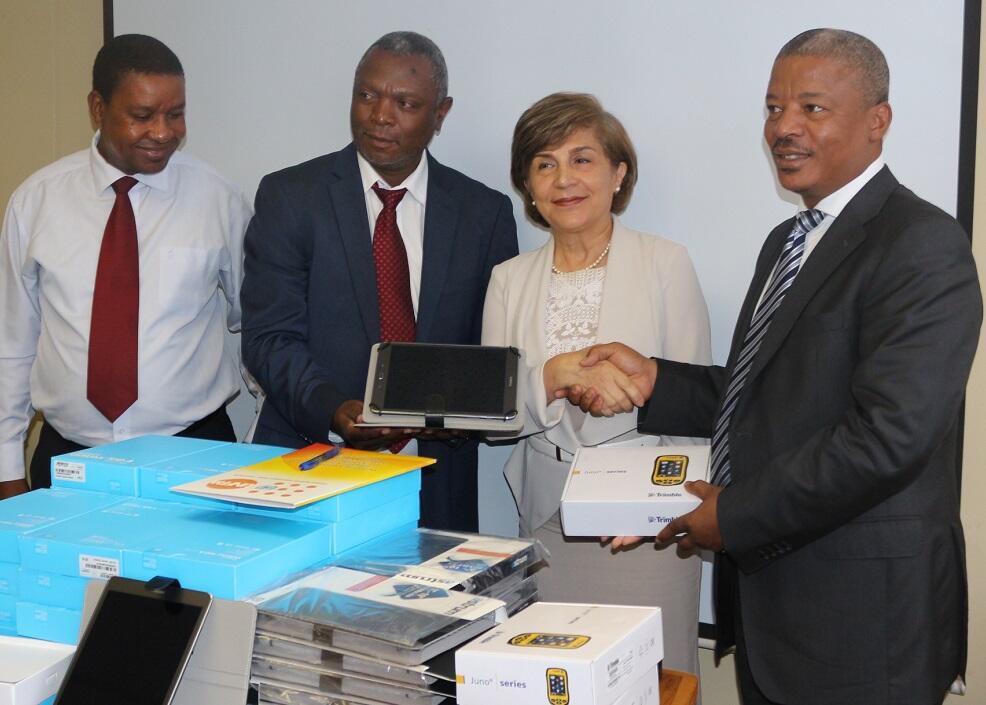MBABANE, Swaziland - Every 10 years, since 1966, the Government of Swaziland, conducts a Population and Housing Census, the largest national data undertaking which provides demographic and socio-economic data on every person who is resident in Swaziland at the time of the census. The last national Population and Housing Census was conducted in 2007, and the country is now gearing up for the next census to be conducted in April/May 2017. Preparations for this national exercise are already underway, and field officers have already been deployed to initiate country mapping processes.
The 2017 Population and Housing Census is especially important because it will be the first census to utilize computer-based mobile equipment for data collection, thereby developing national capacity for the collection and analysis of census data through the use of digital technologies. To contribute towards the strengthening of national capacity in this area, in April 2016, the United Nations Population Fund (UNFPA) supported a Swaziland team to travel to Senegal, one of the first countries in Africa to pioneer mobile census technology, for a South-South information and experience exchange. Members of the Swaziland delegation included three statisticians from the Central Statistical Office who are core members of the census planning team, working under the demography, cartography and information technology portfolios, an applications developer from the Computer Services Department and one UNFPA staff member leading the Population and Development portfolio. The Swaziland team learned what worked best for the Senegal in the use of digital technology in the undertaking of their census and this knowledge is now being used to shape the 2017 Swaziland Population and Housing census operational plan.
UNFPA support and collaboration to national housing and population censuses in Swaziland dates back to the 1976 and covers both technical and financial assistance to carry out census activities, as well as lead the coordination and leveraging of resources among development partners for various processes in the census implementation. Part of UNFPA support to the 2017 national census exercise included the provision of technical support and supply of mobile census equipment to the Ministry of Economic Planning and Development - Central Statistical Office - for data collection. The equipment donated included 35 electronic tablets and 4 Arc Geographic Information Systems (GIS) licenses. Receiving the equipment on behalf of the Ministry, Principal Secretary, Mr Bertram Stewart, thanked UNFPA for the support and noted that the donation will go a long way in supporting the country as it switches to computer-based technology for data collection. Speaking at the official handover event, UNFPA Representative, Ms Sharareh Amirkhalili remarked that UNFPA welcomed the shift towards digital data collection, noting that this will improve efficiency and minimize human error. She assured the government that UNFPA and other UN agencies will continue to provide the necessary technical and financial support to ensure the successful implementation of the housing and population census.
The Government of Swaziland has committed to provide 85 percent of the census budget and over and above this the cost for engaging the Census Technical Specialist. Other UN agencies that have provided financial support towards the census are the United Nations Children’s Emergency Fund (UNICEF) and the World Health Organization (WHO).




